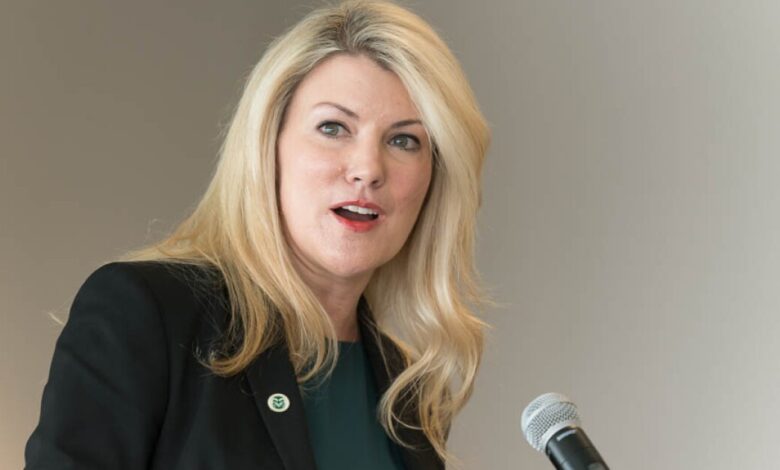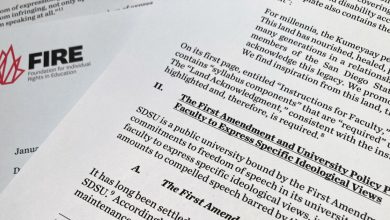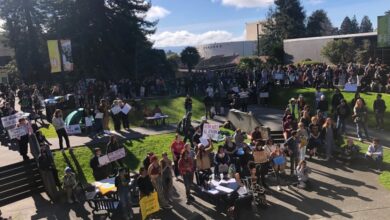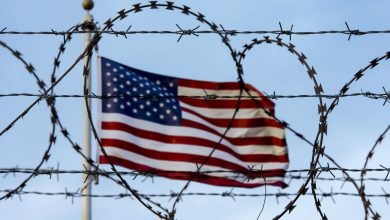Colorado State Paid Its Ex-President Nearly $1.6M to Leave. Her Likely Replacement Is Raising Eyebrows.

[ad_1]
Amy Parsons, a former senior administrator at Colorado State University at Fort Collins, will in all likelihood become the flagship’s next president, a selection that some professors view as misguided. Adding to the unease are lingering concerns about the departure of the previous president, Joyce McConnell, who was paid nearly $1.6 million to resign in June.
Parsons, a Colorado State alumna, worked as its deputy general counsel before becoming vice president for university operations in 2009. She held that role until 2015, when she became executive vice chancellor of the Colorado State system. She left that post in 2020 to become the founding chief executive officer of Mozzafiato LLC, an e-commerce company.
The system’s Board of Governors announced Parsons as the “sole finalist” for the job this month and will meet Friday to formally vote on the hire. Kim Jordan, chair of the board, told The Chronicle that Parsons’ knowledge of the Colorado State flagship and the system was unmatched, and that she had a deep understanding of the challenges facing the university and higher ed more broadly.
In a letter she wrote to the search committee, Parsons billed herself as someone with strong ties to Colorado State who had, in her various roles, navigated complicated legal terrain and overseen close to $1 billion in capital projects. “There is only one job that could entice me to leave my current role, and that’s this one,” Parsons said in a news release announcing her as the finalist.
As a candidate, Parsons is “maybe somewhat nontraditional,” said Terrence MacTaggart, a senior fellow at AGB Consulting and a former university system chancellor. She is not a former provost, dean, or vice president of research. But looking at her background, MacTaggart said, she seems like she would be familiar with academic culture and the importance of research.
If a university was hiring a dean to lead its college of sciences, for example, it’d examine a candidate’s research record and ability to secure grants, MacTaggart said. But the responsibilities of a university president are much broader. For one thing, “you want somebody who is versed in the power structures surrounding a university,” he said.
Sue Doe, chair of Colorado State’s Faculty Council, said in an email that of the faculty members who are hopeful about Parsons, many believe she can apply her business savvy to increase faculty and staff compensation.
Still, some faculty members are concerned about her lack of an academic background.
To Steven Shulman, a professor of economics, Parsons is an atypical choice for a university president. She does not have ties to the faculty or ties to the student experience, nor is she a former politician, like Mitch Daniels or Ben Sasse, who had obvious political connections to bring to the table.
“The question is really, ‘Where did she come from? Why is she there?’” Shulman said. For an answer, Shulman and others at Colorado State point to Parsons’ long-standing working relationship with Tony Frank, the chancellor of the Colorado State system, whom Shulman referred to as the institution’s “Wizard of Oz.” Years ago, when Frank was president of the Fort Collins campus, he asked Parsons to be vice president of university operations. Frank then took on a dual role as university president and system chancellor in 2015, and Parsons became the system’s executive vice chancellor.
In her letter to the search committee, Parsons mentioned the “many valuable lessons” she learned while working closely with Frank for 16 years. He instilled in her “a deep appreciation for the history and promise of the legacy of the land-grant institution and its role in the lives of our students and our nation as a whole,” she wrote.
Jordan, Colorado State’s board chair, said that the board has discussed the main strains of criticism about Parsons. “Her not being a faculty member certainly came up,” Jordan said. “We feel like that’s really a key role for a strong provost, and I’m sure that Amy is very aware of that” and will pick a person who has “a strong relationship [with] and understanding of faculty and of research, both.”
Of Frank’s role in Parsons’ selection, Jordan noted that the system chancellor did not serve on the 31-member search committee. When that committee passed along three semi-finalists to the board for final interviews, Jordan asked Frank to be in the room — she, in part, wanted to signal to the candidates that the board and the system’s leader have a good working relationship. But Frank did not ask questions or make any comments during deliberation, Jordan said.
“The board understands that it’s the role of the appointed governors … to conduct that process and to make those final decisions,” Jordan said.
Aside from Parsons’ particular qualifications, Alexandra Bernasek, a professor of economics, is also concerned about the manner in which she was selected. Rather than having multiple finalists come to campus and meet with faculty, staff, and students, the board only named one “finalist.”
“When somebody is simply announced and people do have concerns about that person, you’re in a position where there’s really not much that can be done,” Bernasek said.
Jordan said that the search firm selected by the board strongly recommended a closed search to field a better candidate pool.
Hanging over Parsons’ selection is the abrupt exit of McConnell, who was hired on a five-year contract in 2019 to become Colorado State’s first female president. But last summer, it was announced that she and the board had agreed to “part ways.” McConnell would reportedly be paid around $1.57 million to leave the job ahead of schedule. The separation agreement included a “mutual non-disparagement” section.
McConnell’s ouster was destabilizing for the university and damaged its national reputation, Shulman said. (Jordan said McConnell’s departure was a personnel matter and she could not discuss it.)
“To this day, none of us know why she was fired,” the professor said, “because they simply refuse to tell us.”
[ad_2]
Source link






